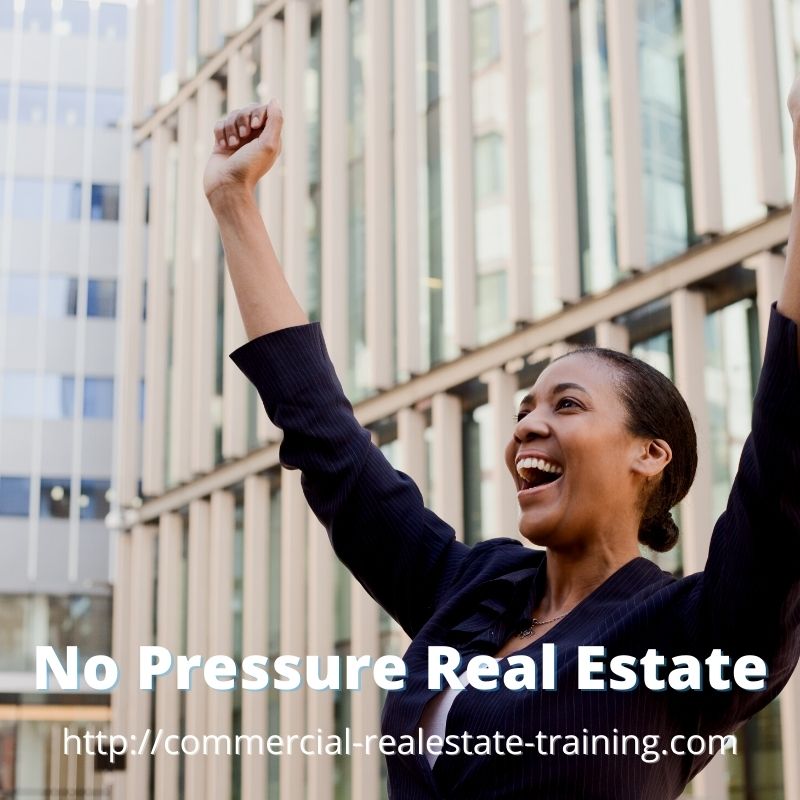Clear Solutions for a Top Commercial Real Estate Agent Sales Pitch
When you have met with the commercial real estate prospect, you’ll have a reasonable understanding of their needs and demands, and you can merge those facts into your sales pitch.
At this point, decide whether you want to work for them and take on the listing. Are your strategies and recommendations aligned with the client and their property?

Agents Join Here Free
For resources, tips, tools, and templates for commercial real estate
If you are a commercial real estate agent, you might be interested in joining us. We can provide valuable insights, tips, and trends in the commercial real estate market globally. Don’t miss this chance to stay ahead of the curve and grow your business with our email bulletins.
What Do You Consider Important to Put in Your Sales Pitch?
Consider the attractiveness of the property and its liquidity factor for buyers. Just how attractive is the property to the target audience?
The liquidity factor to consider is the ability to move the property quickly in the current market. To achieve this awareness, ask yourself the following questions –
- Are the tenants in the property attractive to an incoming purchaser?
- Are the leases on the property supportive of rental growth and opportunity?
- Are the leases in the property professionally prepared by a solicitor and registered on the title?
- Is the property located in an area where tenants want to be?
- What do the neighbours think of the existing property?
- What rental types and levels are acceptable in the market, and does this property provide them?
- What comparable properties exist in the area and remain unsold or vacant?
- What is the future of the other developments in the area, and is there an abundance of development land nearby that will soften the potential price you can achieve?
- What are the supply and demand factors for lettable space in the region?
- What are the historical facts of the property and the building?
- Are there any environmental issues that could jeopardize the sale?
- Has the building been on the market before, and if so, for how long and at what price or method of sale?
- Given the local business sentiment and environmental and economic conditions, how would you best market the existing property?
- What is the best time of year to sell the property?
- Are there any vacancy factors or short-term leases in the property that must be rectified before moving towards a sale?
- Given the current asset, what is its future life cycle, and who will be attracted to the property in its potential sale?
- What is the best way to sell the building quickly for the best price?
- What amount of vendor advertising will you need to impact the market?
- What is the existing time on market for current sales stock?
- Have you fully inspected the property and the precinct to understand what you are dealing with?
- Have you identified and inspected all property documentation, including leases, and titles, relevant to the property’s sale?
- Are there any existing incentives with the current leases on the property that will need to be handled and extinguished as part of the sale settlement?
- What is the target market for the property?
- Do the leases for current tenants generate any weaknesses for the sale?
- Are there any encumbrances on the property or in the region that impact the property in any way?
Given all of these issues, you can establish a reasonable opinion on the saleability of the property. The most important question you need to answer is whether you want the listing.
Can you see that the listing will sell? Do not waste time on any high-priced stale listings or unsaleable stock. Without an adjustment in this way, results will be hard to achieve.

Preparing for the Listing Meeting
Assuming you have satisfied yourself that the property will likely sell, and that you want to sell the property, you will need to prepare for the next meeting with the client. The next meeting will focus on closing on a signed exclusive listing appointment.
Let us now look at some issues that need some preparation before the second meeting with the client.
Given that the ultimate outcome you require is a signed exclusive listing, you must work backwards through the key client issues as part of your planning process. This will require you to work on a checklist and an agenda for the meeting. This checklist and agenda will be for your purpose only and to keep you on track. The best commercial salespeople know exactly what the meeting is to achieve and have a plan for the process.

What Sales Pitch Hurdles Exist?
From the previous meeting with the client or prospect, what are the identified hurdles that could need attention in the second meeting? The most common hurdles are –
- price
- rent
- timing
- type of agency appointment
- advertising and marketing funds
- method of sale
- method of lease
- marketing
- details of comparable properties
- elimination of tenancy and vacancy issues prior to sale
There may be other hurdles for you to consider so be alert to the hidden messages and focus points of the client.
For the moment, let’s assume that the client’s situation is relatively standard and that the items listed above are typical for your consideration in the second meeting.
You will need to structure at least two positions of logical argument that support your strategies or decisions on the above matters. When required in your meeting with the client you will need to table and explain your logical arguments.
You can now channel the focus of your presentation processes and documentation, and to do this there are three essential client criteria to be considered on your part.

The Key Elements of Your Sales Proposal
These are the 4 important issues for you to get organised in your proposal.
Product Alignment – Your property needs to be aligned with the current market and economic conditions. This will include reviewing existing lease documentation, tenancy occupation, building presentation, rental structures, and occupancy costs such as outgoings. Any weaknesses in these matters must be identified before moving to sale.
Pricing Strategy – It is well known and proven fact that a commercial property placed on the market at a fixed price will not attract as much interest as the same property offered for sale by auction, tender, or expressions of interest. These alternative methods of sale can offer more momentum in the sale process to focus both buyers and sellers on an action plan and timely results. As a direct comparison, properties offered for sale at a predetermined price generally stay on the market for longer and are harder to negotiate towards a sale.
Marketing Strategy – The marketing of any commercial property today is shifting heavily towards Internet-based promotion. In most cases, your marketing should incorporate the following initiatives; signage, the Internet, an e-mail database, direct telephone contact, direct mail, local and regional papers, contact with the owners of neighbouring properties, contact with businesses in the area. The balance you apply to these initiatives in your property marketing plan will be driven by the type of property and the market in which it’s located.
Best Method of Sale – The method of sale has been spoken of earlier, and most particularly the best way to sell commercial real estate is by a timely method of sale that promotes momentum and decision. In almost all cases, this will be a sales campaign designed for auction, tender, or expressions of interest.
It should be noted that the tender process can provide better prices, given that the bidders do not know who is competing for the property and at what price.
The auction process is, however, a public event and places a lot of emotional pressure on both the seller and the buyer of the property.
You make your own choice. The method of sale for the subject property is essential to your choice, and you will need to structure sound and solid reasons around why the seller should accept that method of sale.
After considering all of the above matters, you will be in a better position to approach the property owner for the listing closure meeting, allowing you to put the best case forward to list and sell the property with your agency.







